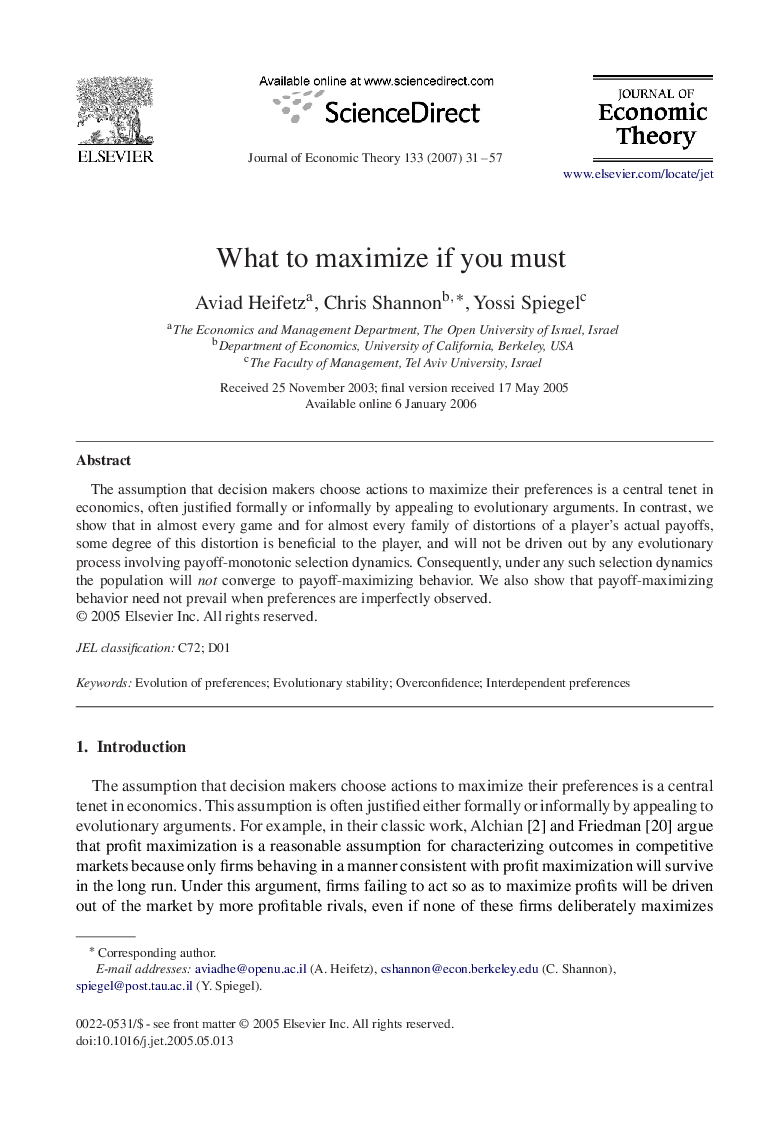| Article ID | Journal | Published Year | Pages | File Type |
|---|---|---|---|---|
| 957398 | Journal of Economic Theory | 2007 | 27 Pages |
Abstract
The assumption that decision makers choose actions to maximize their preferences is a central tenet in economics, often justified formally or informally by appealing to evolutionary arguments. In contrast, we show that in almost every game and for almost every family of distortions of a player's actual payoffs, some degree of this distortion is beneficial to the player, and will not be driven out by any evolutionary process involving payoff-monotonic selection dynamics. Consequently, under any such selection dynamics the population will not converge to payoff-maximizing behavior. We also show that payoff-maximizing behavior need not prevail when preferences are imperfectly observed.
Keywords
Related Topics
Social Sciences and Humanities
Economics, Econometrics and Finance
Economics and Econometrics
Authors
Aviad Heifetz, Chris Shannon, Yossi Spiegel,
